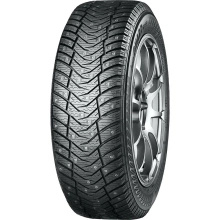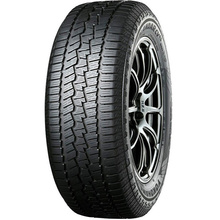
New inTires Yokohama BLUEARTH E51A 225/60 R18 100H
- ?
Tire size: this is the tire size designation, for example 225/45 R18:
225 – tire width in millimeters,
45 – aspect ratio, meaning the sidewall height is 45% of the tire width,
R – indicates radial tire construction,
18 – inner diameter of the tire (rim size), expressed in inches.Tyre size:225/60 R18 - ?
The speed index is a letter designation that indicates the maximum speed at which a tire can safely operate while maintaining the allowable load. According to the law, a tire should have at least the speed index (and load index) recommended by the vehicle manufacturer. It is possible to use tires with a higher speed index, which is often permitted by the vehicle manufacturer.
Speed index:H - 210 km/h - ?
The load index (also known as the load rating) is a numerical indicator that specifies the maximum permissible load a single tire can carry at the recommended pressure and within its speed rating. Each numerical load index corresponds to a specific weight (given in kilograms), e.g., 91 means 615 kg.
Capacity Index:100 - 800 kg - ?
Tire season: indicates the weather conditions for which the rubber compound and tread pattern are designed. Summer, winter, or all-season. A compromise between summer and winter tires; they perform well in various climatic conditions, but in extremely hot or winter climates they are significantly inferior to dedicated tires.
Season:Summer - ?
The tyre label (EU label) is an official marking introduced in the European Union that provides information about the basic parameters of a tyre and its impact on safety and the environment.
Label:E C 71 dB - ?
In Poland, the PN-C94300 standard "Tyres – packaging, storage and transport" is in force. According to its guidelines, tires can be placed on the market, stored, distributed, and sold without restrictions for up to 3 years from their production date. The tires retain all their safety and performance properties.
Year of tire production:Do 3 lat
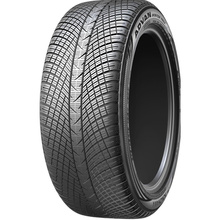
Tires Yokohama ADVAN WINTER V907 265/40 R20 104V
- ?
Tire size: this is the tire size designation, for example 225/45 R18:
225 – tire width in millimeters,
45 – aspect ratio, meaning the sidewall height is 45% of the tire width,
R – indicates radial tire construction,
18 – inner diameter of the tire (rim size), expressed in inches.Tyre size:265/40 R20 - ?
The speed index is a letter designation that indicates the maximum speed at which a tire can safely operate while maintaining the allowable load. According to the law, a tire should have at least the speed index (and load index) recommended by the vehicle manufacturer. It is possible to use tires with a higher speed index, which is often permitted by the vehicle manufacturer.
Speed index:V - 240 km/h - ?
The load index (also known as the load rating) is a numerical indicator that specifies the maximum permissible load a single tire can carry at the recommended pressure and within its speed rating. Each numerical load index corresponds to a specific weight (given in kilograms), e.g., 91 means 615 kg.
Capacity Index:104 - 900 kg - ?
Tire season: indicates the weather conditions for which the rubber compound and tread pattern are designed. Summer, winter, or all-season. A compromise between summer and winter tires; they perform well in various climatic conditions, but in extremely hot or winter climates they are significantly inferior to dedicated tires.
Season:Winter - ?
The tyre label (EU label) is an official marking introduced in the European Union that provides information about the basic parameters of a tyre and its impact on safety and the environment.
Label:D B 71 dB - ?
In Poland, the PN-C94300 standard "Tyres – packaging, storage and transport" is in force. According to its guidelines, tires can be placed on the market, stored, distributed, and sold without restrictions for up to 3 years from their production date. The tires retain all their safety and performance properties.
Year of tire production:2025
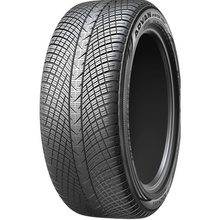
Tires Yokohama ADVAN WINTER V907 265/35 R20 99V
- ?
Tire size: this is the tire size designation, for example 225/45 R18:
225 – tire width in millimeters,
45 – aspect ratio, meaning the sidewall height is 45% of the tire width,
R – indicates radial tire construction,
18 – inner diameter of the tire (rim size), expressed in inches.Tyre size:265/35 R20 - ?
The speed index is a letter designation that indicates the maximum speed at which a tire can safely operate while maintaining the allowable load. According to the law, a tire should have at least the speed index (and load index) recommended by the vehicle manufacturer. It is possible to use tires with a higher speed index, which is often permitted by the vehicle manufacturer.
Speed index:V - 240 km/h - ?
The load index (also known as the load rating) is a numerical indicator that specifies the maximum permissible load a single tire can carry at the recommended pressure and within its speed rating. Each numerical load index corresponds to a specific weight (given in kilograms), e.g., 91 means 615 kg.
Capacity Index:99 - 775 kg - ?
Tire season: indicates the weather conditions for which the rubber compound and tread pattern are designed. Summer, winter, or all-season. A compromise between summer and winter tires; they perform well in various climatic conditions, but in extremely hot or winter climates they are significantly inferior to dedicated tires.
Season:Winter - ?
The tyre label (EU label) is an official marking introduced in the European Union that provides information about the basic parameters of a tyre and its impact on safety and the environment.
Label:D B 71 dB - ?
In Poland, the PN-C94300 standard "Tyres – packaging, storage and transport" is in force. According to its guidelines, tires can be placed on the market, stored, distributed, and sold without restrictions for up to 3 years from their production date. The tires retain all their safety and performance properties.
Year of tire production:2025
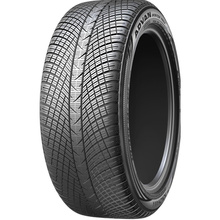
Tires Yokohama ADVAN WINTER V907 265/35 R21 101W
- ?
Tire size: this is the tire size designation, for example 225/45 R18:
225 – tire width in millimeters,
45 – aspect ratio, meaning the sidewall height is 45% of the tire width,
R – indicates radial tire construction,
18 – inner diameter of the tire (rim size), expressed in inches.Tyre size:265/35 R21 - ?
The speed index is a letter designation that indicates the maximum speed at which a tire can safely operate while maintaining the allowable load. According to the law, a tire should have at least the speed index (and load index) recommended by the vehicle manufacturer. It is possible to use tires with a higher speed index, which is often permitted by the vehicle manufacturer.
Speed index:W - 270 km/h - ?
The load index (also known as the load rating) is a numerical indicator that specifies the maximum permissible load a single tire can carry at the recommended pressure and within its speed rating. Each numerical load index corresponds to a specific weight (given in kilograms), e.g., 91 means 615 kg.
Capacity Index:101 - 825 kg - ?
Tire season: indicates the weather conditions for which the rubber compound and tread pattern are designed. Summer, winter, or all-season. A compromise between summer and winter tires; they perform well in various climatic conditions, but in extremely hot or winter climates they are significantly inferior to dedicated tires.
Season:Winter - ?
The tyre label (EU label) is an official marking introduced in the European Union that provides information about the basic parameters of a tyre and its impact on safety and the environment.
Label:D B 71 dB - ?
In Poland, the PN-C94300 standard "Tyres – packaging, storage and transport" is in force. According to its guidelines, tires can be placed on the market, stored, distributed, and sold without restrictions for up to 3 years from their production date. The tires retain all their safety and performance properties.
Year of tire production:2024
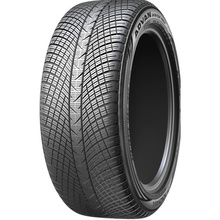
Tires Yokohama ADVAN WINTER V907 315/35 R21 111W
- ?
Tire size: this is the tire size designation, for example 225/45 R18:
225 – tire width in millimeters,
45 – aspect ratio, meaning the sidewall height is 45% of the tire width,
R – indicates radial tire construction,
18 – inner diameter of the tire (rim size), expressed in inches.Tyre size:315/35 R21 - ?
The speed index is a letter designation that indicates the maximum speed at which a tire can safely operate while maintaining the allowable load. According to the law, a tire should have at least the speed index (and load index) recommended by the vehicle manufacturer. It is possible to use tires with a higher speed index, which is often permitted by the vehicle manufacturer.
Speed index:W - 270 km/h - ?
The load index (also known as the load rating) is a numerical indicator that specifies the maximum permissible load a single tire can carry at the recommended pressure and within its speed rating. Each numerical load index corresponds to a specific weight (given in kilograms), e.g., 91 means 615 kg.
Capacity Index:111 - 1090 kg - ?
Tire season: indicates the weather conditions for which the rubber compound and tread pattern are designed. Summer, winter, or all-season. A compromise between summer and winter tires; they perform well in various climatic conditions, but in extremely hot or winter climates they are significantly inferior to dedicated tires.
Season:Winter - ?
The tyre label (EU label) is an official marking introduced in the European Union that provides information about the basic parameters of a tyre and its impact on safety and the environment.
Label:B C 72 dB - ?
In Poland, the PN-C94300 standard "Tyres – packaging, storage and transport" is in force. According to its guidelines, tires can be placed on the market, stored, distributed, and sold without restrictions for up to 3 years from their production date. The tires retain all their safety and performance properties.
Year of tire production:Do 3 lat
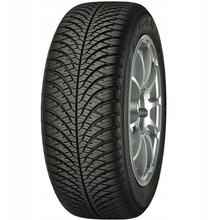
Tires Yokohama BluEarth-4S AW21 245/35 R20 95Y
- ?
Tire size: this is the tire size designation, for example 225/45 R18:
225 – tire width in millimeters,
45 – aspect ratio, meaning the sidewall height is 45% of the tire width,
R – indicates radial tire construction,
18 – inner diameter of the tire (rim size), expressed in inches.Tyre size:245/35 R20 - ?
The speed index is a letter designation that indicates the maximum speed at which a tire can safely operate while maintaining the allowable load. According to the law, a tire should have at least the speed index (and load index) recommended by the vehicle manufacturer. It is possible to use tires with a higher speed index, which is often permitted by the vehicle manufacturer.
Speed index:Y - 300 km/h - ?
The load index (also known as the load rating) is a numerical indicator that specifies the maximum permissible load a single tire can carry at the recommended pressure and within its speed rating. Each numerical load index corresponds to a specific weight (given in kilograms), e.g., 91 means 615 kg.
Capacity Index:95 - 690 kg - ?
Tire season: indicates the weather conditions for which the rubber compound and tread pattern are designed. Summer, winter, or all-season. A compromise between summer and winter tires; they perform well in various climatic conditions, but in extremely hot or winter climates they are significantly inferior to dedicated tires.
Season:All Season - ?
The tyre label (EU label) is an official marking introduced in the European Union that provides information about the basic parameters of a tyre and its impact on safety and the environment.
Label:D B 71 dB - ?
In Poland, the PN-C94300 standard "Tyres – packaging, storage and transport" is in force. According to its guidelines, tires can be placed on the market, stored, distributed, and sold without restrictions for up to 3 years from their production date. The tires retain all their safety and performance properties.
Year of tire production:2025
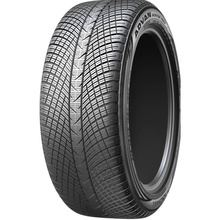
Tires Yokohama ADVAN WINTER V907 295/40 R20 110V
- ?
Tire size: this is the tire size designation, for example 225/45 R18:
225 – tire width in millimeters,
45 – aspect ratio, meaning the sidewall height is 45% of the tire width,
R – indicates radial tire construction,
18 – inner diameter of the tire (rim size), expressed in inches.Tyre size:295/40 R20 - ?
The speed index is a letter designation that indicates the maximum speed at which a tire can safely operate while maintaining the allowable load. According to the law, a tire should have at least the speed index (and load index) recommended by the vehicle manufacturer. It is possible to use tires with a higher speed index, which is often permitted by the vehicle manufacturer.
Speed index:V - 240 km/h - ?
The load index (also known as the load rating) is a numerical indicator that specifies the maximum permissible load a single tire can carry at the recommended pressure and within its speed rating. Each numerical load index corresponds to a specific weight (given in kilograms), e.g., 91 means 615 kg.
Capacity Index:110 - 1060 kg - ?
Tire season: indicates the weather conditions for which the rubber compound and tread pattern are designed. Summer, winter, or all-season. A compromise between summer and winter tires; they perform well in various climatic conditions, but in extremely hot or winter climates they are significantly inferior to dedicated tires.
Season:Winter - ?
The tyre label (EU label) is an official marking introduced in the European Union that provides information about the basic parameters of a tyre and its impact on safety and the environment.
Label:D B 72 dB - ?
In Poland, the PN-C94300 standard "Tyres – packaging, storage and transport" is in force. According to its guidelines, tires can be placed on the market, stored, distributed, and sold without restrictions for up to 3 years from their production date. The tires retain all their safety and performance properties.
Year of tire production:2025
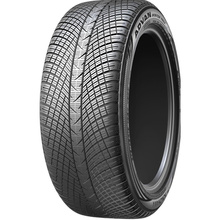
Tires Yokohama Advan Winter V907 275/40 R20 106V
- ?
Tire size: this is the tire size designation, for example 225/45 R18:
225 – tire width in millimeters,
45 – aspect ratio, meaning the sidewall height is 45% of the tire width,
R – indicates radial tire construction,
18 – inner diameter of the tire (rim size), expressed in inches.Tyre size:275/40 R20 - ?
The speed index is a letter designation that indicates the maximum speed at which a tire can safely operate while maintaining the allowable load. According to the law, a tire should have at least the speed index (and load index) recommended by the vehicle manufacturer. It is possible to use tires with a higher speed index, which is often permitted by the vehicle manufacturer.
Speed index:V - 240 km/h - ?
The load index (also known as the load rating) is a numerical indicator that specifies the maximum permissible load a single tire can carry at the recommended pressure and within its speed rating. Each numerical load index corresponds to a specific weight (given in kilograms), e.g., 91 means 615 kg.
Capacity Index:106 - 950 kg - ?
Tire season: indicates the weather conditions for which the rubber compound and tread pattern are designed. Summer, winter, or all-season. A compromise between summer and winter tires; they perform well in various climatic conditions, but in extremely hot or winter climates they are significantly inferior to dedicated tires.
Season:Winter - ?
The tyre label (EU label) is an official marking introduced in the European Union that provides information about the basic parameters of a tyre and its impact on safety and the environment.
Label:C B 71 dB - ?
In Poland, the PN-C94300 standard "Tyres – packaging, storage and transport" is in force. According to its guidelines, tires can be placed on the market, stored, distributed, and sold without restrictions for up to 3 years from their production date. The tires retain all their safety and performance properties.
Year of tire production:2025
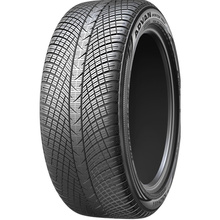
Tires Yokohama Advan Winter V907 235/40 R19 96V
- ?
Tire size: this is the tire size designation, for example 225/45 R18:
225 – tire width in millimeters,
45 – aspect ratio, meaning the sidewall height is 45% of the tire width,
R – indicates radial tire construction,
18 – inner diameter of the tire (rim size), expressed in inches.Tyre size:235/40 R19 - ?
The speed index is a letter designation that indicates the maximum speed at which a tire can safely operate while maintaining the allowable load. According to the law, a tire should have at least the speed index (and load index) recommended by the vehicle manufacturer. It is possible to use tires with a higher speed index, which is often permitted by the vehicle manufacturer.
Speed index:V - 240 km/h - ?
The load index (also known as the load rating) is a numerical indicator that specifies the maximum permissible load a single tire can carry at the recommended pressure and within its speed rating. Each numerical load index corresponds to a specific weight (given in kilograms), e.g., 91 means 615 kg.
Capacity Index:96 - 710 kg - ?
Tire season: indicates the weather conditions for which the rubber compound and tread pattern are designed. Summer, winter, or all-season. A compromise between summer and winter tires; they perform well in various climatic conditions, but in extremely hot or winter climates they are significantly inferior to dedicated tires.
Season:Winter - ?
The tyre label (EU label) is an official marking introduced in the European Union that provides information about the basic parameters of a tyre and its impact on safety and the environment.
Label:D B 71 dB - ?
In Poland, the PN-C94300 standard "Tyres – packaging, storage and transport" is in force. According to its guidelines, tires can be placed on the market, stored, distributed, and sold without restrictions for up to 3 years from their production date. The tires retain all their safety and performance properties.
Year of tire production:2025
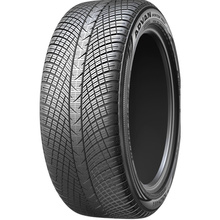
Tires Yokohama Advan Winter V907 255/45 R20 105V
- ?
Tire size: this is the tire size designation, for example 225/45 R18:
225 – tire width in millimeters,
45 – aspect ratio, meaning the sidewall height is 45% of the tire width,
R – indicates radial tire construction,
18 – inner diameter of the tire (rim size), expressed in inches.Tyre size:255/45 R20 - ?
The speed index is a letter designation that indicates the maximum speed at which a tire can safely operate while maintaining the allowable load. According to the law, a tire should have at least the speed index (and load index) recommended by the vehicle manufacturer. It is possible to use tires with a higher speed index, which is often permitted by the vehicle manufacturer.
Speed index:V - 240 km/h - ?
The load index (also known as the load rating) is a numerical indicator that specifies the maximum permissible load a single tire can carry at the recommended pressure and within its speed rating. Each numerical load index corresponds to a specific weight (given in kilograms), e.g., 91 means 615 kg.
Capacity Index:105 - 925 kg - ?
Tire season: indicates the weather conditions for which the rubber compound and tread pattern are designed. Summer, winter, or all-season. A compromise between summer and winter tires; they perform well in various climatic conditions, but in extremely hot or winter climates they are significantly inferior to dedicated tires.
Season:Winter - ?
The tyre label (EU label) is an official marking introduced in the European Union that provides information about the basic parameters of a tyre and its impact on safety and the environment.
Label:C B 71 dB - ?
In Poland, the PN-C94300 standard "Tyres – packaging, storage and transport" is in force. According to its guidelines, tires can be placed on the market, stored, distributed, and sold without restrictions for up to 3 years from their production date. The tires retain all their safety and performance properties.
Year of tire production:2025
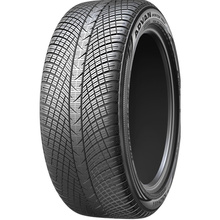
Tires Yokohama Advan Winter V907 315/40 R21 115W
- ?
Tire size: this is the tire size designation, for example 225/45 R18:
225 – tire width in millimeters,
45 – aspect ratio, meaning the sidewall height is 45% of the tire width,
R – indicates radial tire construction,
18 – inner diameter of the tire (rim size), expressed in inches.Tyre size:315/40 R21 - ?
The speed index is a letter designation that indicates the maximum speed at which a tire can safely operate while maintaining the allowable load. According to the law, a tire should have at least the speed index (and load index) recommended by the vehicle manufacturer. It is possible to use tires with a higher speed index, which is often permitted by the vehicle manufacturer.
Speed index:W - 270 km/h - ?
The load index (also known as the load rating) is a numerical indicator that specifies the maximum permissible load a single tire can carry at the recommended pressure and within its speed rating. Each numerical load index corresponds to a specific weight (given in kilograms), e.g., 91 means 615 kg.
Capacity Index:115 - 1215 kg - ?
Tire season: indicates the weather conditions for which the rubber compound and tread pattern are designed. Summer, winter, or all-season. A compromise between summer and winter tires; they perform well in various climatic conditions, but in extremely hot or winter climates they are significantly inferior to dedicated tires.
Season:Winter - ?
The tyre label (EU label) is an official marking introduced in the European Union that provides information about the basic parameters of a tyre and its impact on safety and the environment.
Label:C B 72 dB - ?
In Poland, the PN-C94300 standard "Tyres – packaging, storage and transport" is in force. According to its guidelines, tires can be placed on the market, stored, distributed, and sold without restrictions for up to 3 years from their production date. The tires retain all their safety and performance properties.
Year of tire production:2025
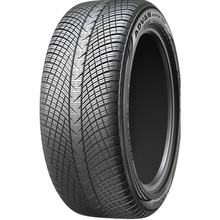
Tires Yokohama Advan Winter V907 245/45 R20 103V
- ?
Tire size: this is the tire size designation, for example 225/45 R18:
225 – tire width in millimeters,
45 – aspect ratio, meaning the sidewall height is 45% of the tire width,
R – indicates radial tire construction,
18 – inner diameter of the tire (rim size), expressed in inches.Tyre size:245/45 R20 - ?
The speed index is a letter designation that indicates the maximum speed at which a tire can safely operate while maintaining the allowable load. According to the law, a tire should have at least the speed index (and load index) recommended by the vehicle manufacturer. It is possible to use tires with a higher speed index, which is often permitted by the vehicle manufacturer.
Speed index:V - 240 km/h - ?
The load index (also known as the load rating) is a numerical indicator that specifies the maximum permissible load a single tire can carry at the recommended pressure and within its speed rating. Each numerical load index corresponds to a specific weight (given in kilograms), e.g., 91 means 615 kg.
Capacity Index:103 - 875 kg - ?
Tire season: indicates the weather conditions for which the rubber compound and tread pattern are designed. Summer, winter, or all-season. A compromise between summer and winter tires; they perform well in various climatic conditions, but in extremely hot or winter climates they are significantly inferior to dedicated tires.
Season:Winter - ?
The tyre label (EU label) is an official marking introduced in the European Union that provides information about the basic parameters of a tyre and its impact on safety and the environment.
Label:D B 71 dB - ?
In Poland, the PN-C94300 standard "Tyres – packaging, storage and transport" is in force. According to its guidelines, tires can be placed on the market, stored, distributed, and sold without restrictions for up to 3 years from their production date. The tires retain all their safety and performance properties.
Year of tire production:Do 3 lat
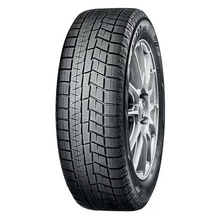
Tires Yokohama ICE GUARD IC60 235/40 R18 95Q
- ?
Tire size: this is the tire size designation, for example 225/45 R18:
225 – tire width in millimeters,
45 – aspect ratio, meaning the sidewall height is 45% of the tire width,
R – indicates radial tire construction,
18 – inner diameter of the tire (rim size), expressed in inches.Tyre size:235/40 R18 - ?
The speed index is a letter designation that indicates the maximum speed at which a tire can safely operate while maintaining the allowable load. According to the law, a tire should have at least the speed index (and load index) recommended by the vehicle manufacturer. It is possible to use tires with a higher speed index, which is often permitted by the vehicle manufacturer.
Speed index:Q - 160 km/h - ?
The load index (also known as the load rating) is a numerical indicator that specifies the maximum permissible load a single tire can carry at the recommended pressure and within its speed rating. Each numerical load index corresponds to a specific weight (given in kilograms), e.g., 91 means 615 kg.
Capacity Index:95 - 690 kg - ?
Tire season: indicates the weather conditions for which the rubber compound and tread pattern are designed. Summer, winter, or all-season. A compromise between summer and winter tires; they perform well in various climatic conditions, but in extremely hot or winter climates they are significantly inferior to dedicated tires.
Season:Winter - ?
The tyre label (EU label) is an official marking introduced in the European Union that provides information about the basic parameters of a tyre and its impact on safety and the environment.
Label:D E 71 dB - ?
In Poland, the PN-C94300 standard "Tyres – packaging, storage and transport" is in force. According to its guidelines, tires can be placed on the market, stored, distributed, and sold without restrictions for up to 3 years from their production date. The tires retain all their safety and performance properties.
Year of tire production:Do 3 lat
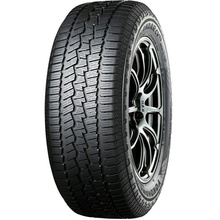
Tires Yokohama GEOLANDAR CV4S G061 235/70 R16 106H
- ?
Tire size: this is the tire size designation, for example 225/45 R18:
225 – tire width in millimeters,
45 – aspect ratio, meaning the sidewall height is 45% of the tire width,
R – indicates radial tire construction,
18 – inner diameter of the tire (rim size), expressed in inches.Tyre size:235/70 R16 - ?
The speed index is a letter designation that indicates the maximum speed at which a tire can safely operate while maintaining the allowable load. According to the law, a tire should have at least the speed index (and load index) recommended by the vehicle manufacturer. It is possible to use tires with a higher speed index, which is often permitted by the vehicle manufacturer.
Speed index:H - 210 km/h - ?
The load index (also known as the load rating) is a numerical indicator that specifies the maximum permissible load a single tire can carry at the recommended pressure and within its speed rating. Each numerical load index corresponds to a specific weight (given in kilograms), e.g., 91 means 615 kg.
Capacity Index:106 - 950 kg - ?
Tire season: indicates the weather conditions for which the rubber compound and tread pattern are designed. Summer, winter, or all-season. A compromise between summer and winter tires; they perform well in various climatic conditions, but in extremely hot or winter climates they are significantly inferior to dedicated tires.
Season:All Season - ?
The tyre label (EU label) is an official marking introduced in the European Union that provides information about the basic parameters of a tyre and its impact on safety and the environment.
Label:C C 71 dB - ?
In Poland, the PN-C94300 standard "Tyres – packaging, storage and transport" is in force. According to its guidelines, tires can be placed on the market, stored, distributed, and sold without restrictions for up to 3 years from their production date. The tires retain all their safety and performance properties.
Year of tire production:2024
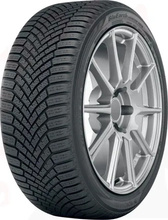
Tires Yokohama BluEarth*WINTER V906A 225/45 R17 91H
- ?
Tire size: this is the tire size designation, for example 225/45 R18:
225 – tire width in millimeters,
45 – aspect ratio, meaning the sidewall height is 45% of the tire width,
R – indicates radial tire construction,
18 – inner diameter of the tire (rim size), expressed in inches.Tyre size:225/45 R17 - ?
The speed index is a letter designation that indicates the maximum speed at which a tire can safely operate while maintaining the allowable load. According to the law, a tire should have at least the speed index (and load index) recommended by the vehicle manufacturer. It is possible to use tires with a higher speed index, which is often permitted by the vehicle manufacturer.
Speed index:H - 210 km/h - ?
The load index (also known as the load rating) is a numerical indicator that specifies the maximum permissible load a single tire can carry at the recommended pressure and within its speed rating. Each numerical load index corresponds to a specific weight (given in kilograms), e.g., 91 means 615 kg.
Capacity Index:91 - 615 kg - ?
Tire season: indicates the weather conditions for which the rubber compound and tread pattern are designed. Summer, winter, or all-season. A compromise between summer and winter tires; they perform well in various climatic conditions, but in extremely hot or winter climates they are significantly inferior to dedicated tires.
Season:Winter - ?
The tyre label (EU label) is an official marking introduced in the European Union that provides information about the basic parameters of a tyre and its impact on safety and the environment.
Label:D B 71 dB - ?
In Poland, the PN-C94300 standard "Tyres – packaging, storage and transport" is in force. According to its guidelines, tires can be placed on the market, stored, distributed, and sold without restrictions for up to 3 years from their production date. The tires retain all their safety and performance properties.
Year of tire production:2025
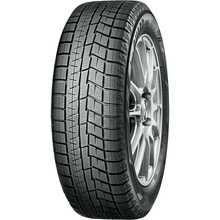
Tires Yokohama ICE GUARD IG60 XL RPB 275/35 R19 100Q
- ?
Tire size: this is the tire size designation, for example 225/45 R18:
225 – tire width in millimeters,
45 – aspect ratio, meaning the sidewall height is 45% of the tire width,
R – indicates radial tire construction,
18 – inner diameter of the tire (rim size), expressed in inches.Tyre size:275/35 R19 - ?
The speed index is a letter designation that indicates the maximum speed at which a tire can safely operate while maintaining the allowable load. According to the law, a tire should have at least the speed index (and load index) recommended by the vehicle manufacturer. It is possible to use tires with a higher speed index, which is often permitted by the vehicle manufacturer.
Speed index:Q - 160 km/h - ?
The load index (also known as the load rating) is a numerical indicator that specifies the maximum permissible load a single tire can carry at the recommended pressure and within its speed rating. Each numerical load index corresponds to a specific weight (given in kilograms), e.g., 91 means 615 kg.
Capacity Index:100 - 800 kg - ?
Tire season: indicates the weather conditions for which the rubber compound and tread pattern are designed. Summer, winter, or all-season. A compromise between summer and winter tires; they perform well in various climatic conditions, but in extremely hot or winter climates they are significantly inferior to dedicated tires.
Season:Winter - ?
The tyre label (EU label) is an official marking introduced in the European Union that provides information about the basic parameters of a tyre and its impact on safety and the environment.
Label:E F 71 dB - ?
In Poland, the PN-C94300 standard "Tyres – packaging, storage and transport" is in force. According to its guidelines, tires can be placed on the market, stored, distributed, and sold without restrictions for up to 3 years from their production date. The tires retain all their safety and performance properties.
Year of tire production:Do 3 lat
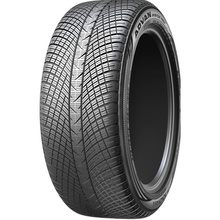
Tires Yokohama ADVAN WINTER V907 XL RPB 255/50 R19 107V
- ?
Tire size: this is the tire size designation, for example 225/45 R18:
225 – tire width in millimeters,
45 – aspect ratio, meaning the sidewall height is 45% of the tire width,
R – indicates radial tire construction,
18 – inner diameter of the tire (rim size), expressed in inches.Tyre size:255/50 R19 - ?
The speed index is a letter designation that indicates the maximum speed at which a tire can safely operate while maintaining the allowable load. According to the law, a tire should have at least the speed index (and load index) recommended by the vehicle manufacturer. It is possible to use tires with a higher speed index, which is often permitted by the vehicle manufacturer.
Speed index:V - 240 km/h - ?
The load index (also known as the load rating) is a numerical indicator that specifies the maximum permissible load a single tire can carry at the recommended pressure and within its speed rating. Each numerical load index corresponds to a specific weight (given in kilograms), e.g., 91 means 615 kg.
Capacity Index:107 - 975 kg - ?
Tire season: indicates the weather conditions for which the rubber compound and tread pattern are designed. Summer, winter, or all-season. A compromise between summer and winter tires; they perform well in various climatic conditions, but in extremely hot or winter climates they are significantly inferior to dedicated tires.
Season:Winter - ?
In Poland, the PN-C94300 standard "Tyres – packaging, storage and transport" is in force. According to its guidelines, tires can be placed on the market, stored, distributed, and sold without restrictions for up to 3 years from their production date. The tires retain all their safety and performance properties.
Year of tire production:2025
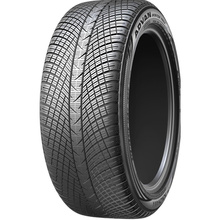
Tires Yokohama ADVAN WINTER V907 XL 235/50 R19 103V
- ?
Tire size: this is the tire size designation, for example 225/45 R18:
225 – tire width in millimeters,
45 – aspect ratio, meaning the sidewall height is 45% of the tire width,
R – indicates radial tire construction,
18 – inner diameter of the tire (rim size), expressed in inches.Tyre size:235/50 R19 - ?
The speed index is a letter designation that indicates the maximum speed at which a tire can safely operate while maintaining the allowable load. According to the law, a tire should have at least the speed index (and load index) recommended by the vehicle manufacturer. It is possible to use tires with a higher speed index, which is often permitted by the vehicle manufacturer.
Speed index:V - 240 km/h - ?
The load index (also known as the load rating) is a numerical indicator that specifies the maximum permissible load a single tire can carry at the recommended pressure and within its speed rating. Each numerical load index corresponds to a specific weight (given in kilograms), e.g., 91 means 615 kg.
Capacity Index:103 - 875 kg - ?
Tire season: indicates the weather conditions for which the rubber compound and tread pattern are designed. Summer, winter, or all-season. A compromise between summer and winter tires; they perform well in various climatic conditions, but in extremely hot or winter climates they are significantly inferior to dedicated tires.
Season:Winter - ?
In Poland, the PN-C94300 standard "Tyres – packaging, storage and transport" is in force. According to its guidelines, tires can be placed on the market, stored, distributed, and sold without restrictions for up to 3 years from their production date. The tires retain all their safety and performance properties.
Year of tire production:2025
History of Yokohama Company
The Yokohama Rubber Company was founded in Japan in 1917. From the very beginning, the company focused on producing high-quality tires for various types of vehicles, ranging from passenger cars to commercial trucks. Yokohama quickly gained recognition in the automotive market due to its innovative approach to tire production.
Technologies and Innovations in Yokohama Tires
Yokohama has been investing in the development of modern technologies used in tire production for years. The company is known for using advanced materials, such as nano-materials and special polymers, which have a positive impact on tire performance. The technologies employed in Yokohama tires provide excellent grip, driving comfort, and fuel efficiency.
Product Range Division and Top Models
Yokohama tires are available in a wide range, including various types of tires designed for summer, winter, and all-season driving. The manufacturer's lineup includes sport tires, off-road tires, and run-flat tires. Among the most popular Yokohama models are those from the ADVAN, GEOLANDAR, and BluEarth lines.
Sustainable Development and Ecology
One of Yokohama's brand priorities is caring for the natural environment. The company undertakes initiatives to reduce the impact of tire production on the ecosystem. Yokohama is involved in the development of eco-friendly tires that use environmentally friendly materials and production processes that reduce CO2 emissions.
Why Choose Yokohama Tires?
Choosing Yokohama tires ensures high quality, safety, and driving comfort. Thanks to innovative technologies, these tires provide excellent grip and fuel efficiency. Additionally, the company's commitment to sustainable development means that by choosing Yokohama tires, you are not only taking care of your safety but also the natural environment.




 Modern design
Modern design Perfect fit
Perfect fit High durability
High durability Free shipping within 24 hours
Free shipping within 24 hours
 Individual project
Individual project Dedicated caregiver
Dedicated caregiver
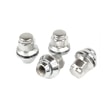
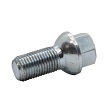
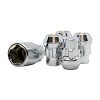


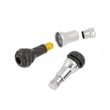
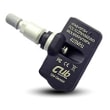
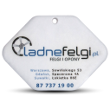


 Compare
Compare
 Add to wish list
Add to wish list
